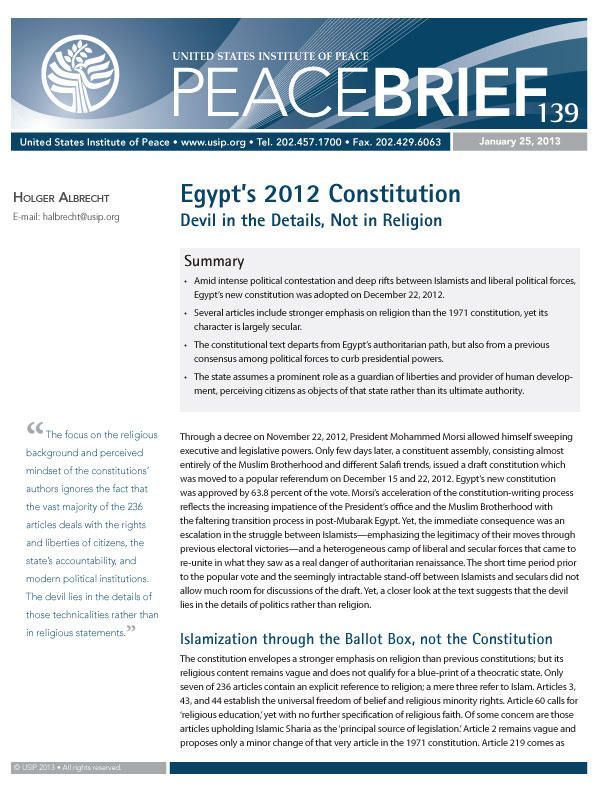Devil in the Details, Not in Religion
Dr. Holger Albrecht is an assistant professor of political science at the American University in Cairo and Jennings Randolph senior fellow (2012-2013). His main research focus is on political opposition in the authoritarian regimes, transition to democracy, and civil-military relations in the Middle East and North Africa. His new book, “Raging Against the Machine: Political Opposition under Authoritarianism in Egypt,” is forthcoming with Syracuse University Press.
Summary
- Amid intense political contestation and deep rifts between Islamists and liberal political forces, Egypt’s new constitution was adopted on December 22, 2012.
- Several articles include stronger emphasis on religion than the 1971 constitution, yet its character is largely secular.
- The constitutional text departs from Egypt’s authoritarian path, but also from a previous consensus among political forces to curb presidential powers.
- The state assumes a prominent role as a guardian of liberties and provider of human development, perceiving citizens as objects of that state rather than its ultimate authority.
About this Brief
Dr. Holger Albrecht is an assistant professor of political science at the American University in Cairo and Jennings Randolph senior fellow (2012-2013). His main research focus is on political opposition in the authoritarian regimes, transition to democracy, and civil-military relations in the Middle East and North Africa. His new book, “Raging Against the Machine: Political Opposition under Authoritarianism in Egypt,” is forthcoming with Syracuse University Press.
